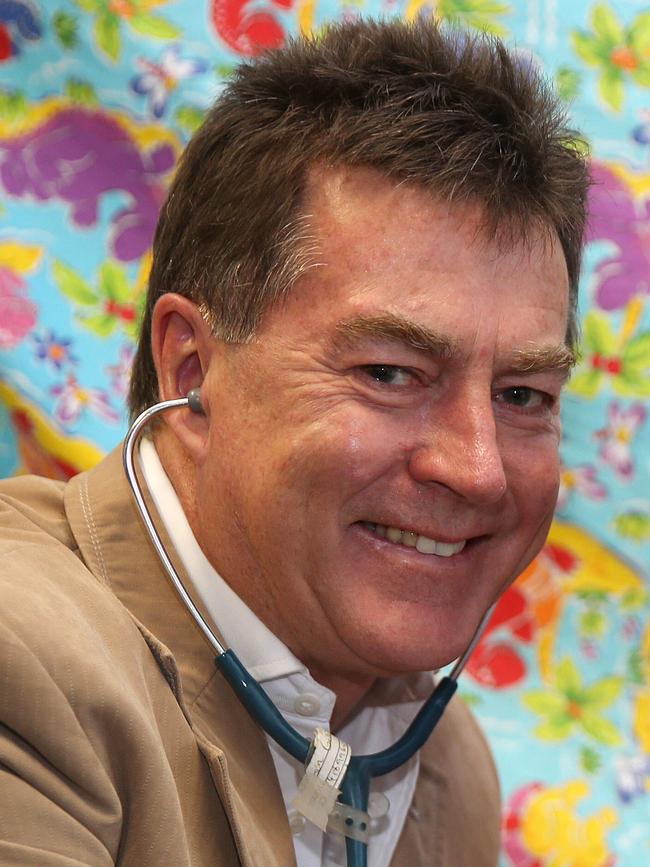Paediatricians fear kids at risk as national diabetes program trains school staff to administer insulin
Paediatricians and patient groups are calling for a government program that trains school staff to manage Type 1 diabetes in students to be suspended, claiming it places children at risk.

A prominent paediatrician and patient groups are calling for a Federal government program that trains school staff to manage Type 1 diabetes in students at schools to be suspended, claiming it is not delivering an accredited training course and is placing children at risk.
Paediatrician Peter Goss, who is specialised in children’s diabetes, has labelled the $21 million Diabetes in Schools program a “systemic failure” that has failed to supply properly trained staff in schools qualified to administer insulin and provide active management of students with T1D, resulting in “random, ad hoc” care that also leaves schools legally exposed.
Dr Goss, chair of the Australian Paediatric Society Diabetes Committee, is alleging the DIS program was constructed by deliberately excluding workplace safety representatives, teacher and nurses unions and not listening to the voices of rural child health and independent consumer groups.
However Diabetes Australia is hailing the program as having set up a consistent process to ensure the safe and legal administration of insulin at school in Australia. So far over 5,000 schools and 100,000 school staff have voluntarily participated in the program and completed training and the program has widespread support, including from the Federal government.

But the patient groups Type 1 Voice and Type 1 Foundation, along with the Australian Paediatric Society, have been vocal critics of the program since its inception and their concerns have grown stronger since the 2019 death of 16-year-old Lachlan Cook, a diabetic student from Victoria who suffered a fatal episode of ketoacidosis on a camp in Vietnam that school staff were unable to manage. There was no staff member trained in diabetes management on the camp.
The key concern according to critics is that the Level 3 training offered under the DIS program does not qualify school personnel to administer insulin, a schedule 4 poison. Nurses are only able to administer insulin in a hospital setting in the presence of a second nurse. Paramedics are not able to administer the drug at all, and only medically qualified staff are able to administer insulin in aged care.
Diabetes Australia is operating on the basis that administration of insulin by non medically qualified people in school workplaces does not by law require a qualification.

“This program does not qualify anyone who is not medically trained to give insulin,” Dr Goss said. “They’ve spent $21m on a program which gives nothing but wrapping paper and there’s no substance to it.”
Those who disagree allege Dr Goss is in the minority and had pushed a rival program.
Melbourne mother Tamara Boyer was the first to expose the legal issues with diabetes when her Type 1 diabetic son began school in 2014. She was successful in securing a school nurse for that public school, but that remains an extremely rare circumstance. Schools have a duty of care to students and must make reasonable adjustments to ensure the safety of diabetic students.
Australia’s pre-eminent law firm Arnold Bloch Leibler provided Ms Boyer a legal opinion on the common law and statutory requirements to provide qualified resources at school, which established students with type 1 diabetes must be provided with qualified support for their complex medical needs.
“No one has ever disputed the legal advice. It is disturbing that after all these years with irrefutable facts on record and this information being in the hands of those providing the advice, that this situation has continued and not improved,” Ms Boyer said. “The misleading information is dangerous.”

Lorraine Pitman from Type 1 Voice labelled the DIS program a “facade” and questioned whether it was in compliance with schools’ legal and regulatory obligations.
“The Program is a facade falsely presenting as a ‘miracle solution’ for families trying to work and manage the to continuous 24/7 care of their child. However, scratch the surface and the program doesn’t meet legal and regulatory obligations, and is not permitted in any other workplace.”
The Federal Government has now acknowledged in written correspondence that the Diabetes Australia advice and program being implemented as policy across the State education sector provides no qualification to school staff for the medical care of students.” Not acting to address this risk is irresponsible and reckless.”
Under the DIS program, DA has signed contracts with six metropolitan hospitals whose staff provide Level 3 training to school staff to administer insulin. The city hospitals signed contracts that bind their health workers to exclusive use of the Diabetes Australia program.
Dr Goss alleges the training has no recognised accreditation attached to it. “In all other sectors of employment, a medically untrained person is not allowed to administer dangerous drugs, let alone inject them into children,” Dr Goss said.
“This government program requires urgent redress, especially when the health and safety of children is concerned.”
Diabetes Australia has defended the program by stressing its voluntary nature and stressed it was developed with input by all of Australia’s leading diabetes organisations, including Diabetes Australia, JDRF Australia, the Australasian Paediatric Endocrine Group, the Australian Diabetes Society, and the Australian Diabetes Educators Association - all of which are members of what is known as the Alliance.
“No Diabetes in Schools funding flows to any members of the Australian Diabetes Alliance,” a spokesperson for Diabetes Australia said.
Funding is provided to tertiary hospitals to deliver Level 3 Training, individualised to a child’s needs, and that training is delivered face-to-face by a member of that child’s clinical treating team where possible.
More than 82,000 sessions across all levels of training have been completed by participants in regional, remote and very remote locations according to Diabetes Australia. More than 5,000 participants have completed Level 3 Training from more than 800 schools outside of major cities.






To join the conversation, please log in. Don't have an account? Register
Join the conversation, you are commenting as Logout